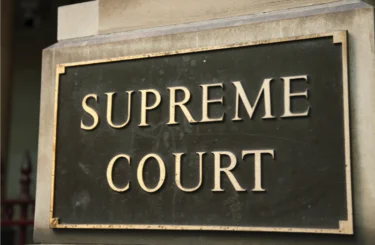
How Will Volkswagen Fix the Diesel Vehicles That It Manipulated?
Since admitting it circumvented federal pollution standards on more than 11 million diesel-burning vehicles worldwide, Volkswagen has turned its attention to how it will fix those cars — and keep its customers happy.
In September, Volkswagen acknowledged that it activated pollution-control software on certain diesel vehicles only during government emissions tests. After the tests were performed, the software was turned off, dodging U.S. Environmental Protection Agency emission-control standards.
The EPA, in its initial September 18 notice of violation, alleged that four-cylinder (2.0 liter) Volkswagen and Audi diesel cars from model years 2009 through 2015 include software that circumvents EPA emissions standards. Then on November 2, the EPA issued a second notice of violation to Volkswagen AG, Audi AG, Porsche AG, Volkswagen Group of America, Inc., and Porsche Cars North America, Inc. alleging that certain six-cylinder (3.0 liter) diesel vehicles also include software that circumvents EPA emissions standards.
Since acknowledging that it manipulated diesel vehicles to skirt pollution-control regulations, Volkswagen has faced an onslaught of class-action suits, including several filed by Sommers Schwartz attorneys in Michigan federal courts on behalf of VW diesel owners.
Now, Volkswagen is reportedly focused on fixing the rigged vehicles, which includes nearly a half-million cars in the United States alone. But exactly how will the automaker remedy the problem?
Auto industry analysts have suggested that Volkswagen will actually need to come up with two solutions that each involve both software and hardware changes. This is because two different emission-control systems were installed on vehicles during the 2009-2015 model years. Only these models are affected because VW first began installing the illegal emissions software in 2008.
According to the Wall Street Journal, the fixes will involve “refitting” vehicles, requiring a change of software as well as hardware changes in older VW models not sold in the United States.
The software change includes an update to the program that controls the 2-liter engine. As a result of the update, VW said it expects that carbon dioxide emissions and fuel consumption will minimally rise. Because of this predicted increase in emissions, industry experts are uncertain whether the software change will fix the problem in the American-owned vehicles, due to more stringent pollution-control standards in the United States than in other countries.
Analysts have cautioned the software changes could leave the vehicles, which have been advertised as “clean diesel” cars, with diminished fuel economy, performance, and resale value. If so, this could create additional customer dissatisfaction with Volkswagen, further tarnishing the company’s reputation with car buyers.
The proposed fixes must be approved before being implemented. Volkswagen had planned to use the month of October to present the solutions to the appropriate authorities, including the EPA and the California Air Resources Board.
If you own a VW diesel vehicle manufactured between 2008 and 2015, please contact us today at 248.355.0300 or VWlawsuit@sommerspc.com to discuss your right to potential compensation.
Jason J. Thompson
Jason Thompson is a nationally board certified trial attorney and co-chairs Sommers Schwartz’s Complex Litigation Department. He has a formidable breadth of litigation experience, including class action and multidistrict litigation (MDL), and practices nationwide in both state and federal courts.





